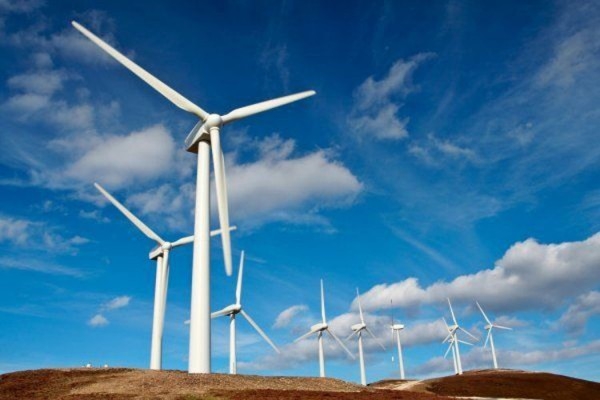Morocco: Siemens to Invest MAD 1.1 Billion in Tangier’s Automotive City
2016/01/05

German company Siemens plans to build an industrial unit to manufacture wind turbine blades in Morocco’s Tangier’s Automotive City (TAC).
The engineering giant will begin construction of the new plant in March 2016 for an estimated cost of MAD 1.1 billion, according to the Regional Investment Center (CRI).
The wind turbine blade facility will cover an area of 13 hectares with a production capacity of 600 blades per year and is expected to employ 670 people, L’Economiste reported in its Monday issue.
“It is a pride for the region to host a project of this scale, not only in terms of cost of investment and job creation but particularly in terms of acquiring expertise in a specialized field as is that of renewable energy,” CRI Director Oumar Chräibi told the same source.
Siemens is part the companies short-listed for the construction of wind farms totaling 850 megawatts of power productions.
The German company’s new plant at Tangier Med’s TAC is scheduled to be in operation by February 2017, the daily noted.
The German multinational has been established in Morocco for 56 years, contributing to technological and social developments and economic increase.
According to Siemens Morocco, the enterprise operates in several domains such as “transportation, metallurgy, energy transmission and distribution, software design and production, renewable energy and healthcare”.
- Related Articles
-
Children on the move from Africa do not first aim to go to Europe, new UNICEF study shows
2017/07/29 Children on the move into Europe from Africa take the decision to leave home on their own and do not initially intend to go to Europe. For the majority the systematic trauma and abuse they witnessed or suffered in Libya caused them to flee to Europe and take the terrifying Central Mediterranean sea route, according to a new study commissioned by UNICEF and carried out by REACH. -
WHO lauds Africa’s progress in malaria, HIV control
2017/07/29 The World Health Organisation (WHO), has commended the African region for making significant evolution in malaria control in the last five years. Dr Matshidiso Moeti, the WHO Regional Director for Africa, in a statement in Abuja on Tuesday, said malaria incidence and mortality rates had declined by 42 % and 66 % respectively between 2000 and 2015. Moeti made the commendation in Kigali, Rwanda, while speaking at the Initial Africa Health Forum, launched by WHO, Africa and the Government of Rwanda. -
The Nigeria Movement for the Liberation of Western Sahara (NMLWS)
2017/07/29 The Nigeria Movement for the Liberation of Western Sahara (NMLWS), has urged Nigerian Government to oppose move by Morocco to join the Economic Community of West Africa States (ECOWAS). A statement by the Convener of NMLWS, Mr Dipo Fashina on Thursday in Abuja, said that Morocco was not classified as member national of ECOWAS by the United Nations and African Union. “The Kingdom is a member of Arab Maghreb Union States together with Algeria, Egypt, Libya, Mauritania and Tunisia. -
South Africa plays an active role in the AU
2017/07/17 Absence of Zuma and Ramaphosa raises eyebrows, quoted Liesl Louw-Vaudran, a consultant at the Institute of Security Studies (ISS), who said South Africa was “ceding power to other players on the continent, such as Rwanda’s President Paul Kagame and the current AU chairperson President Alpha Condé of Guinea”. -
Africa: How to Adapt to Beat Crippling Droughts
2017/07/17 Right presently, 14 million people across southern Africa face going hungry due to the prolonged drought brought on by the strongest El Niño in 50 years. South Africa will import half of its maize and in Zimbabwe as a lot of as 75 % of crops have been abandoned in the worst-hit areas. With extreme weather, such as failed rains, and drought projected to become additional likely as a result of climate change, some farmers are by presently taking matters into their own hands, and pro-actively diversifying the crops they grow.
-
- Morocco News
-
- BOTSWANA: Children on the move from Africa do not first aim to go to Europe, new UNICEF study shows
- BOTSWANA: WHO lauds Africa’s progress in malaria, HIV control
- NIGERIA: Moroccan King Mohammed VI
- BOTSWANA: South Africa plays an active role in the AU
- BOTSWANA: Africa: How to Adapt to Beat Crippling Droughts
- BOTSWANA: Africa: Expanded Engagement for Caterpillar - Boosting Sales & Alleviating Poverty
- Trending Articles
-
- QATAR: Qatar focuses on preventive care in new national health strategy
- CHINA: Why China and Russia will be best frenemies forever
- NIGERIA: The Federal Government Begs Dangote to Complete Refinery Before 2019
- TANZANIA: Acacia Mining aims resume dividend if Tanzania export ban ends
- EGYPT: Sudan: Egyptian FM to Visit Sudan Wednesday
- BOTSWANA: Africa: How to Adapt to Beat Crippling Droughts




.gif?1356023993)


